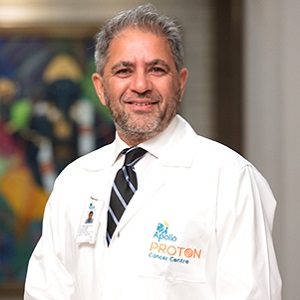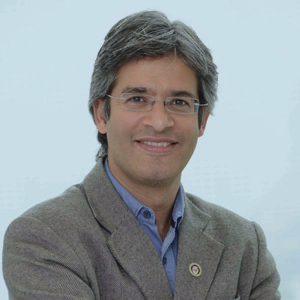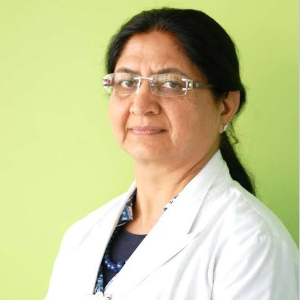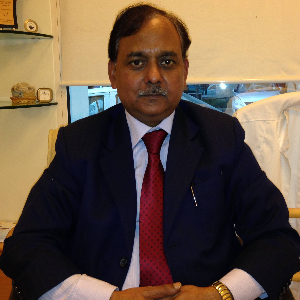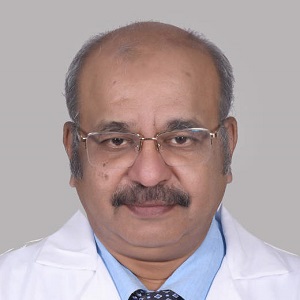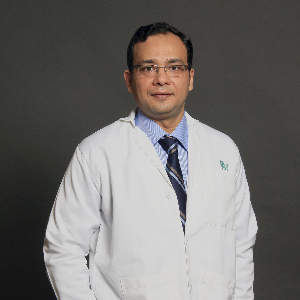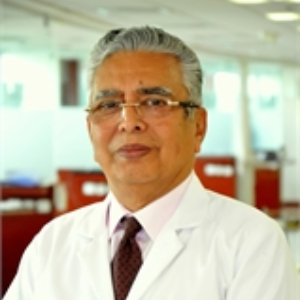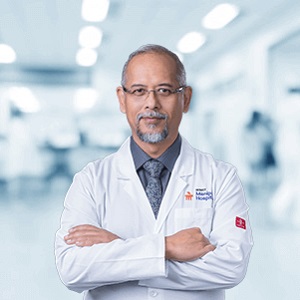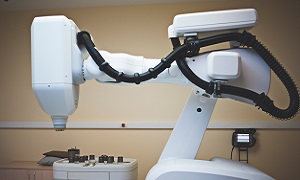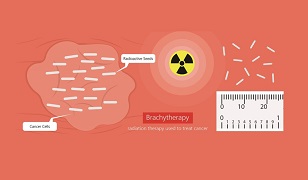Best Prostate Cancer treatment Doctors in India
- Neuro Oncologist, Chennai, India
- Over 28 years’ experience
- Apollo Proton Cancer Centre
Profile Highlights:
- Dr. Rakesh Jalali is undoubtedly one of the top Radiation Oncologists in the country who is renowned for his high-precision radiation techniques.
- He provides a wide range of radiation treatments customized to treat different kinds of cancers.
- Dr. Jalali, who has a remarkable 28-year of experience in the field of Neuro-Oncology, is highly proficient in employing sophisticated radiation treatment procedures, such as Electron Beam Radiation treatment (3DCRT), IMRT, IGRT, VMAT, BRT, SABR, DIBH, Brachy Treatment, TBI, and TSET, as well as 4D Gated Radio Treatment. These treatments are carefully employed to treat various kinds of cancers such as brain tumors, breast cancer, lung cancer, prostate cancers, and many more.
- Uro Oncologist, New Delhi, India
- Over 20 years’ experience
- Medanta-The Medicity, Gurgaon
Profile Highlights:
- Dr. Gagan Gautam is a pioneering figure in robotic surgery in India, specializing in the surgical treatment of urological cancers with over two decades of expertise.
- His expertise includes robotic prostatectomy for prostate cancer, robotic partial nephrectomy for kidney cancer, and robotic cystectomy for urinary bladder cancer.
- Till date, he has performed more than 1500 robotic procedures for prostate, kidney, and urinary bladder cancer.
- Dr. Gautam advocates for evidence-based medicine and leads a dedicated team focused on personalized counseling and treatment for urological cancers.
- He has worked at some of the leading cancer centers of the world and has also trained at some of the best cancer hospitals.
- Radiation Oncologist, Gurugram, India
- Over 32 years’ experience
- Medanta-The Medicity, Gurgaon
Profile Highlights:
- Dr. Tejinder Kataria is a globally renowned Radiation Oncologist whose pioneering contributions have significantly advanced cancer treatment in India.
- With over 35 years of experience, she has been instrumental in introducing cutting-edge technologies and establishing prominent oncology departments across prestigious institutions. She is currently the Chairperson of Radiation Oncology at Medanta – The Medicity in Gurugram, New Delhi.
- Dr. Kataria played a pivotal role in founding the Department of Radiation Oncology at Rajiv Gandhi Cancer Institute, New Delhi, and Artemis Health Institute, Gurugram. She also established the Division of Radiation Oncology at Medanta, Gurugram, where she continues to innovate and lead.
- Her interests lie in Stereotactic Radio Treatment (SBRT), Image-Guided Radio Treatment (IGRT), Intensity Modulated Radio Treatment (IMRT), 3-D Conformal Radiation (3D CRT), PET-CT, MRI, SPECT, DSA and CT-Simulator fusion for treatment planning.
- Top Urologist | Max Hospital, Saket, New Delhi, India
- 35+ Years Experience
- Max Super Specialty Hospital, Saket, New Delhi
Profile Highlights:
- Dr. Anant Kumar is a distinguished figure in the field of Urology and Kidney Transplantation, boasting an impressive 35 years of experience. Currently serving as Chairman of Uro-Oncology, Robotic & Kidney Transplantation at Max Super Speciality Hospital in Saket, New Delhi, and Max Hospital Vaishali, he is celebrated as one of India’s top robotic and laparoscopic surgeons.
- Renowned for his expertise, Dr. Anant Kumar is widely recognized as the best urologist in Delhi and NCR. His specialties encompass Kidney Transplantation, Robotic Assisted Laparoscopic Urology, Urological Oncology, Laser Urological Surgery, and Reconstructive Urology.
- His reputation as a leader in urology is solidified by his extensive experience, having performed over 3,500 kidney transplants and more than 500 robotic surgeries in recent years.
- Top Radiation Oncologist | Apollo Hospital, New Delhi, India
- 20+ Years Experience
- Indraprastha Apollo Hospital, New Delhi
Profile Highlights:
- Dr. G K Jadhav is one of the leading radiation oncologists in India.
- He has a complex understanding of cancer biology, clinical care, and radiation physics.
- Dr. Jadhav has an experience of more than 20 years in the field of radiation oncology.
- Top Uro - Oncologist | Max Hospital, Saket, New Delhi, India
- 22+ Years Experience
- Max Super Specialty Hospital, Saket, New Delhi
Profile Highlights:
- With an overall work experience of more than 22 years, Dr. Amit Goel is undoubtedly among the finest Uro-Oncologist in India who has been practicing at Max Super Speciality Hospital in New Delhi as the Director and Unit Head of Renal Transplant and Urology.
- He has extensive experience treating over 3500 cases of urological cancers and performing more than 400 kidney transplants, including both ABO-compatible and incompatible cases.
- Dr. Goel received his training in General Urology, Laparoscopic procedures, Endoscopic Surgeries, Renal Transplants, and Emergencies in Urology during his MCh residency.
- Top Surgical Oncologist | Apollo Hospital, New Delhi, India
- 35+ Years Experience
- Indraprastha Apollo Hospital, New Delhi
Profile Highlights:
- Dr. Feroz Pasha is one of the best oncology surgeons in Delhi. His primary interest lies in Uro- and Gynaeoncology procedures.
- During his experience in Surgical Oncology, Dr. Pasha specialized in Port insertion and tumor ablation with radiofrequency.
- Top Urologist | Apollo Hospital, New Delhi, India
- 21+ Years Experience
- Indraprastha Apollo Hospital, New Delhi
Profile Highlights:
- Dr. Anshuman Agarwal is a highly esteemed Urologist with over 21 years of dedicated experience in the field, currently practicing at Apollo Hospitals Indraprastha in New Delhi.
- His academic foundation is robust, holding an MBBS, MS, and MCh in Urology, and he is an active member of both the Urological Society of India and the American Urological Association.
- In addition to his clinical practice, Dr. Agarwal has contributed significantly to academic and research endeavors.
- Radiation Oncologist, Gurugram, India
- Over 40 years’ experience
- Artemis Hospital, Gurgaon
Profile Highlights:
- Dr. Subodh Chandra Pande is a well-known radiation oncologist in India. He has a long and rich clinical and teaching experience in the specialty of radiation oncology.
- He included a Dual Energy Linear Accelerator with Multi-Leaf Collimator at Bhagwan Mahaveer Cancer Hospital and Research Centre (BMCHRC), Jaipur & which was a first for the State of Rajasthan.
- Urologist, New Delhi, India
- Over 25 years’ experience
- Manipal Hospitals, New Delhi
Profile Highlights:
- Dr. Sanjay Gogoi brings over 25 years of extensive experience in Comprehensive Urology Practice, specializing notably in renal transplantation.
- He is distinguished for his expertise in advanced transplant techniques including Laparoscopic and Robotic-Assisted procedures.
- Dr. Gogoi received specialized training in Robotic surgery at the da Vinci Training Center, Intuitive Surgical, California.
- With a track record spanning over six years in performing Robotic Cancer surgeries on various organs such as the Kidney, Bladder, Prostate, and Adrenal, he is renowned for his proficiency in Robotic reconstructive procedures for kidneys, ureters, and bladder, catering to both adult and pediatric patients.
Best Prostate Cancer Treatment Hospitals in India
- City: Gurugram, India
Hospital Highlights:
- One of India’s best and largest multi-specialty hospitals, Medanta was built with the aim to bring India to the highest standards of medical care. The hospital has been providing the best medical services to its patients, since its inception, with care, commitment, and compassion.
- Equipped with 1250 beds, the hospital was founded by Dr. Naresh Trehan in the year 2009 with an aim to provide the best medical care at affordable costs. The hospital is spread across 43 acres and includes 45 operation theatres and 350 beds dedicated solely to ICU. The hospital includes over 800 doctors, and more than 22 specialty departments and has a dedicated floor for individual specialty in order to offer the best services under one roof.
- The hospital is considered one of the premier institutes in India for Cardiac Care and includes staffs and members of high caliber. The hospital has 6 distinct centers of excellence.
- City: Gurugram, India
Hospital Highlights:
- Artemis Hospital, established in 2007 in Gurugram, India, is a leading multi-specialty institution known for its excellence in patient care and advanced medical technology, offering comprehensive services across specialties like Cardiology, Oncology, Neurology, Orthopedics etc.
- Renowned for its patient-focused care, Artemis Hospital combines state-of-the-art infrastructure with a team of internationally trained doctors and surgeons, ensuring the highest standards of medical treatment.
- Accredited by JCI and NABH, Artemis Hospital meets global healthcare quality and safety standards, reflecting its commitment to providing compassionate, personalized care.
- The hospital is recognized for utilizing cutting-edge diagnostic and ther*peutic techniques, ensuring patients receive accurate diagnoses and effective treatments tailored to their needs.
- City: Chennai, India
Hospital Highlights:
- The Apollo Proton Cancer Centre in Chennai is the most sought-after private cancer hospital in India. It is an integrated facility that provides cutting-edge, all inclusive cancer treatment to patients all over the globe.
- The hospital is a part of the renowned Apollo Group which has a large network of over 74 hospitals in India and across the globe. Out of the 74 hospitals, 21 of them are cancer centres. However, Apollo Proton Cancer Centre is the only cancer hospital to have JCI accreditation.
- The Centre, which was established on the principles of excellence and expertise, unites a formidable medical staff led by some of the most illustrious figures in cancer treatment.
- The hospital follows the global ASTRO Model Policy. It is the same global policy which is followed by countries like USA, UK, and Europe.
- Apollo Proton Cancer Centre is among the very few hospitals in India to receive patients from First World countries such as USA, Canada, New Zealand, Australia, Singapore, Thailand, etc.
- Apart from that, it is also the first hospital in Chennai to receive patients from several countries like Uzbekistan, Kazakhstan, Turkmenistan, Georgia, Armenia, Azerbaijan, SAARC countries (Bangladesh, Nepal, Sri Lanka, Maldives, Bhutan, Afghanistan, and Pakistan), South Africa, Turkey, Egypt, etc.
- In fact, there is a dedicated team at the Apollo Proton Cancer Centre that serves only international patients. Thus, on a monthly basis, the Centre receives patients from across 32 countries.
- Moreover, there are certain treatments in Apollo Proton Cancer Centre that are not available in any other centre. APCC addresses all types of possible cancers that are usually not covered by any other centre.
- City: New Delhi, India
Hospital Highlights:
- Over the last 33 years, the Fortis Escorts Heart Institute has set new standards in cardiac treatment with groundbreaking research. It is now known around the world as a centre of expertise for Cardiac Bypass Surgery, Interventional Cardiology, Non-invasive Cardiology, Paediatric Cardiology, and Paediatric Cardiac Surgery.
- The hospital has cutting-edge laboratories that perform a wide range of diagnostic tests in Nuclear Medicine, Radiology, Biochemistry, Haematology, Transfusion Medicine, and Microbiology.
- Fortis Escorts Heart Institute boasts a diverse group of bright and experienced doctors who are backed up by a team of highly qualified, experienced, and devoted support professionals as well as cutting-edge equipment such as the recently installed Dual CT Scan.
- Approximately 200 cardiac doctors and 1600 personnel currently collaborate to manage over 14,500 admissions and 7,200 emergency situations each year. The hospital now has a 310-bed infrastructure, as well as five cath labs and a slew of other world-class amenities.
- City: Gurugram, India
Hospital Highlights:
- Fortis Memorial Research Institute (FMRI) is a premier multi-super-specialty, quaternary care hospital, known for its exceptional international faculty, top-tier clinicians, super-sub-specialists, and specialized nurses, all supported by cutting-edge technology.
- It is the flaship hospital of Fortis Healthcare Limited, part of IHH Healthcare Berhad, a leading integrated healthcare services provider in India. As one of the country’s largest healthcare organizations, Fortis operates 28 healthcare facilities with over 4,500 operational beds (including O&M facilities) and more than 400 diagnostic centers (including joint ventures).
- Recognized as one of the top hospitals in India, FMRI serves as a leading referral center and aspires to be the ‘Mecca of Healthcare’ for India and beyond. Its 11-acre campus is a testament to its commitment to providing world-class healthcare.
- Accredited by JCI and NABH, FMRI is dedicated to maintaining the highest standards of healthcare quality and safety, ensuring that every patient receives the best possible care. The hospital’s reputation is further enhanced by its state-of-the-art facilities and innovative medical practices.
- City: New Delhi, India
Hospital Highlights:
- The Indian Spinal Injuries Center (ISIC), provides state-of-the-art facilities for the management of all types of spinal ailments.
- Staffed with internationally trained, acclaimed, and dedicated spine surgeons, the hospital provides cutting-edge medical & surgical technology. The hospital provides comprehensive management of spinal injury, back pain, spinal deformities, tumors, osteoporosis, etc.
- The hospital performs motion-preserving spine surgeries including disc replacement and dynamic fixation, and minimally invasive spine surgeries such as endoscopic disc excision.
- The orthopedic service of the hospital covers all orthopedic ailments including trauma, joint diseases & replacements, oncology, pediatric orthopedics & upper limb ailment.
- City: Faridabad
Hospital Highlights:
In the sprawling city of Faridabad, where healthcare needs are diverse and ever-evolving, one institution has consistently stood out as a beacon of excellence in the field of medicine—Marengo Asia Hospital. Established with a vision to provide world-class healthcare services to the community it serves, Marengo Asia Hospital has emerged as a trusted name synonymous with quality, compassion, and innovation in healthcare.
- City: New Delhi, India
Hospital Highlights:
- Indraprastha Apollo Hospital is a 700-bedded multispecialty hospital in the heart of the capital of India. It is a part of Apollo Hospital group, one of India’s most reputed healthcare chains. Indraprastha Apollo Hospital has been accredited by Joint Commission International, making it the first internationally accredited hospital in the country in 2005.
- There are 52 specialties in the hospital with one of the best cardiology centers in the country. The hospital is also equipped with State of the art infrastructure facilities with the largest Sleep Lab in Asia and the largest number of ICU bed facilities in India.
- The latest and highly advanced technologies that are installed in the hospital include Da Vinci Robotic Surgery System, PET-MR, PET-CT, Cobalt-based HDR, Brain Lab Navigation System, Tilting MRI, Portable CT scanner, 3 Tesla MRI, 128 Slice CT scanner, DSA Lab, Endosonography, Hyperbaric Chamber and Fibro scan.
- City: New Delhi, India
Hospital Highlights:
- One of the well-regarded providers in India committed to the highest standards of clinical excellence and patient care, Max Super Specialty Hospital is a part of Max Healthcare, which is the second-largest healthcare chain in India. Regarded as one of the most well-regarded healthcare providers in the country, Max Super Specialty Hospital is committed to the highest standards of clinical excellence as well as patient care. The hospital is also equipped with the latest technology as well as cutting-edge research. The hospital is known to deliver and ensure the highest level of patient care.
- The hospital has more than 500 beds and offers treatment for over 35 specialties. The hospital also holds the credit of having installed the first Brain Suite in Asia. This is a highly advanced Neurosurgical machine that allows MRI to be taken while surgery is ongoing.
- Other advanced and latest technologies are also installed in the hospital such as the 1.5 Tesla MRI machine, 64 Slice CT Angiography, 4D ECHO, LINAC, and 3.5T MRI machine.
- City: Kolkata, India
Hospital Highlights:
- Founded in 2017, the HCG EKO Cancer Centre is a committed, all-inclusive cancer care facility in Kolkata.
- The hospital was collaboratively established by India’s leading cancer care provider HCG (HealthCare Global Enterprises Ltd.), and EKO Diagnostic Pvt. Ltd., a top diagnostic and imaging chain in Eastern India.
- With 88 beds, the hospital provides a full spectrum of services including diagnosis, prevention, screening, second opinions, treatment, rehabilitation, follow-up, and palliative care.
- Additionally, the hospital contains a day-care chemotherapy ward, Neutropenic ward, medical ICU, pharmacy, blood bank, and an IPD wing.
- At HCG EKO Cancer Centre Kolkata, a large team of cancer experts with experience in medical oncology, surgical oncology, radiation oncology, hemato oncology, BMT, and nuclear medicine collaborate to offer a variety of treatment options under one roof.
- Furthermore, the hospital is also known for employing the most advanced radiation technology such as, the Radixact, a next-generation TomoTherapy equipment that provides greater radiation delivery precision.
Prostate Cancer
Signs & symptoms of Prostate Cancer
- Incontinence or frequent urination
- Pain during urination.
- Blood may be present in urine or semen.
- Pain in pelvis and lower abdomen.
- Pain or burning sensation during urination.
Prostate Cancer causes
- Prostate cancer rarely effects young men.
- Family history
- Overweight or Obesity
- In some cases, it has been noted that taller men are at higher risk than shorter men.
- Swelling or inflammation if the prostate gland.
- Risk of getting prostate cancer is slightly higher in men who have had a vasectomy.
- Diet
- Smoking
Stages of Prostate Cancer
Stage 1: Cancer is at early stage and is growing. You still cant feel the tumor and it involves one-side of prostate or even less. PSA levels are low, and cancer cells still look like healthy cells (well-differentiated)
Stage 2: The tumor is still localized to prostate. PSA level is low to medium. Tumor may grow larger, cancer cells are mostly well-differentiated in earlier phases of stage 2.
Stage 3: In stage 3, PSA levels will be high, the cancer would be growing and may be of high grade too. Cancer may start spreading.
Stage 4: Cancer has spread beyond the prostate. First it reaches the Lymph node and through Lymph node, to other parts of the body.
Grading of Prostate Cancer
As discussed before, not all cases of prostate cancer require immediate treatment. Urgent treatment is recommended only in the case of high grade prostate cancers.
When the tissue sample is taken for biopsy and cancer is confirmed, the pathologists will evaluate the grade of cancer, that is, how fast the cancer is likely to spread. The most common score to measure the grade of prostate cance is called a Gleason score. Gleason score ranges from 2 to 10 where 10 would be extremely high grade prostate cancer. A scale of upto 6 is considered low grade cancer, 7 is considered medium and above 7-10 are high grade prostate cancers.
These days, genomic testings are also done to assess risk factors of Prostate Cancers.
Diagnosis of Prostate Cancer
PSA or Prostate Specific Antigen test
The patient will have high levels of a protein (PSA) that is released by prostate tissue in blood.
Digital rectal exam or DRE
The doctor feels the part by using his/her finger to find abnormal parts of the prostate.
Biomarker test
Biomarker is a substance that is found in the blood, urine, or body tissues of a person with cancer. This test is called as the Biomarker test.
Trans-rectal Ultrasound
The patient undergoes trans-rectal ultrasound in which the picture of prostate gland is taken using sound waves that bounce off the prostate.
Biopsy
A small amount of tissue from the affected area is removed and send for examination. This is known as Biopsy.
Treatment of Prostate Cancer
Depending on the grades of the prostate cancer, further treatment plan in decided.
For low grade prostate cancers, your oncologist may decide to do Active Surveillance involving regular blood tests, rectal exams and biopsies. However, active surveillance may also be risky at times if the cancer suddenly grows between surveillance periods.
For Medium to High Grade Prostate Cancers, following interventions are commonly considered.
Radical Prostatectomy
For Prostate Cancer, the whole prostate gland is removed. The procedure is called Radical Prostatectomy. Radical Prostatectomy is done in two ways:
Laparoscopic or open radical prostatectomy
The surgeon makes one or more incisions in your lower abdomen and takes out the prostate glad.
Robotic radical prostatectomy
These days, high number of patients opt for Robotic Radical Prostatectomy where robotic arms conduct the surgeon with high degree of preciseness and the arm is controlled by the surgeon sitting at the console.
Patient undergoing Radical Prostatectomy could have erectile dysfunction and urinary incontinence. Your urologist will discuss the possible implications of the procedure with you. You can also discuss all your concerns.
Radiation Therapy
Radiation Therapy is a kind of cancer treatment that uses high doses of radiation beams to kill cancer cells to shrink the tumors. Radiation kills the cancer cells by destroying the DNA. Cancer cells with damaged DNA fail to multiply and die. They are then removed by the body’s mechanism.
External Beam Radiation
Cyberknife Radiosurgery
These days, Stereotactic Radiosurgery is commonly used for highly precise and effective radiation doses to prostate cancers. The most popular SRS is Cyberknife Radisourgery. The Cyberknife is a highly advanced SRS machine which delivers robot-controlled radiation beams from 1400 different angles to the tumor. The machine adjusts against movement of the body and does little or no harm to surrounding healthy tissues. Cyberknife doesn’t have any cut and doesnt need any hospitalization. (Know more about Cyberknife Radiosurgery)
Brachytherapy
Brachytherapy is an internal beam radiation therapy technique where radiation seeds, the size of rice grains are placed in the prostate using a needle, guided by ultrasound imaging. The radioactive seeds keep emitting low dose radiation beams to the cancer over a long period of time. At one point, the seeds stop emitting radiation, but do not need to be removed.
Chemotherapy

Chemotherapy is the use of anti-cancer drug that helps to slow or stop the growth of rapidly dividing cells that cause cancer. It prevents the growth of rapidly dividing cells by killing the dividing cells.
Despite its side effects, chemo is still the most widely used cancer treatment option. Unlike radiation and surgery which treats cancer cells at particular locations, chemotherapy drugs can kill cancer cells that have metastated (spread) to different organs in the body (Read more on: Chemotherapy)
Hormone Therapy
Prostate cancers rely on the hormone, Testosterone to grow. Hormone Therapy can stop producing Testosterone, thereby slowing or killing cancer cells of prostate.
*Testosterone is produced in Testicles. Sometimes, doctors can decide to surgically remove the testicles to inhibit testosterone production. The procedure is called Orchiectomy (Read more on: Hormone Therapy)
Cryosurgery or Cryoablation
Cryosurgery uses the principle of freezing and thawing to kill cancer cells. In cryosurgery, ultrasound guided needles are inserted in the prostate on the tumor and extremely cold gas is passed through the needles. Thereafter hot gas is passed again. The process of cooling and heating kills the cancer cells. Cryosurgery is generally used as an option when Radiation Therapy fails to be effective.
Immunotherapy
Immunotherapy (also called biologic therapy) is a new type of cancer treatment where the body’s immune system is boosted to help the body fight cancer by itself. Immunotherapy uses substances made by the body or in a laboratory to improve or restore immune system function ( Read more on: Immunotherapy)

